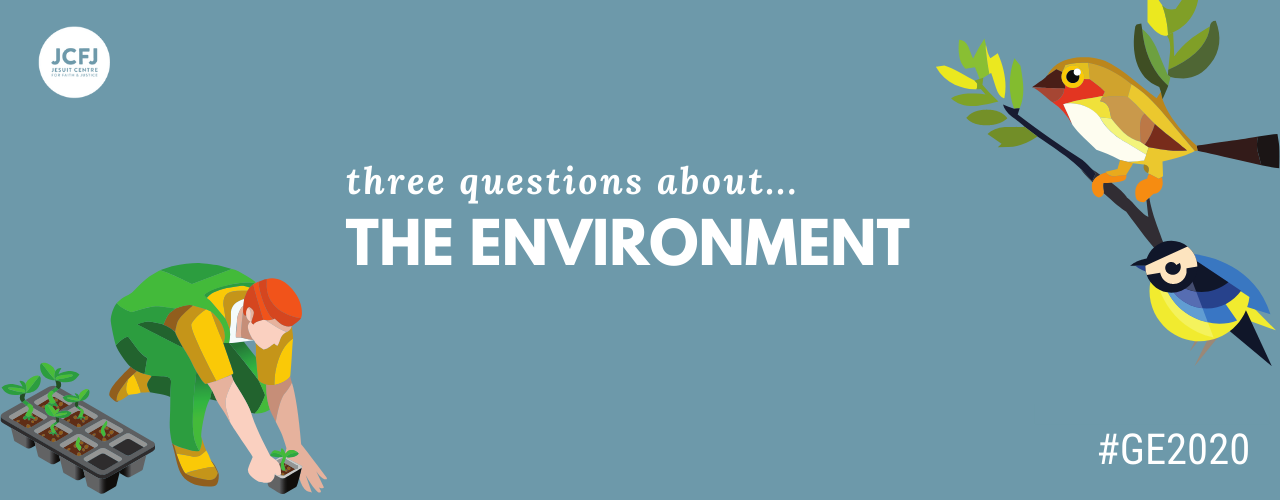
Our series of guides for the upcoming general election will help you decide who deserves your vote. We cover the key facts about the issues, questions you should ask yourself, what to ask politicians who canvass at your door and how to interpret their answers. In this article, our Environmental Justice Advocate, Ciara Murphy pushes us to think about biodiversity, transport and air quality as well as the provenance of our food and its real cost.
3 Things You Need to Know
- Air pollution is a much bigger problem than we thought. In 2016, an estimated 1,180 premature deaths in Ireland, as well as increased hospital admissions for respiratory and heart-related issues were due to poor air quality. Spikes in air pollution can be seen around schools during term-time.
- Biodiversity is essential for our wellbeing. In particular, it is central to soil productivity, pollination, pest predation, water retention, clean water provision and the maintenance of commercial fisheries. 91% of listed habitats in Ireland are in “unfavourable conservation status” and 42% of species are below “favourable conservation status”. Care for the environment has to begin with care for wildlife.
- Agriculture is a leading cause of water pollution, green house gas emissions, and habitat loss in Ireland. It is also one of the most unequal sectors in Ireland, which is highly reliant on subsidies and is very susceptible to climate change. Large landowners and meat processors are getting rich while others are pushed to the brink.
3 Questions to Ask Yourself
- What services and infrastructure would need to be put in place to make public transport, cycling, or walking a more realistic commuting option for me?
- Would my quality of life improve if I had better access to a healthy natural environment?
- What support would I need to change my agricultural practices to be more environmentally friendly? As a consumer would I be prepared to support farmers that are producing our food in a more ecological way?
3 Questions You Need to Ask Politicians
- Are you in favour of shifting funding so public transport, cycling infrastructure, and pedestrian initiatives become more attractive than private car ownership?
- Will you commit to managing 30% of our land and sea for biodiversity? Will you commit to providing the NPWS with €100 million in funding at the next budget?
- How will you support farmers to earn sustainable incomes, care for our vital ecosystems, as well as producing high-quality food?
3 Things Politicians Might Say
- “We will have 1 million Electric Vehicles on the road by 2030”
The recently published Climate Action Plan had heavy emphasis on switching from petrol and diesel cars to electric. This is an impossible goal, but even if it were possible, it remains fundamentally flawed. It simply shifts the carbon demand to the electricity grid. That’s an improvement, but only an incremental one. While EVs have a role to play in decarbonising our transport system we need accessible, affordable public transport as well as widespread and safe cycling and walking infrastructure to transform our transport system.
- “We accept we are in a Climate and Biodiversity Emergency”
The Irish Government declared this in 2019. That is to be welcomed. However, words without action are worth little. In the last budget, the National Parks and Wildlife Service, the state agency whose remit it is to conserve and protect our environment has again been underfunded. It gets less funding than greyhound racing? To protect our natural environment, climate, and biodiversity, we need decisive, transformative action to back up the fine words.
- “There are significant growth opportunities in the Irish agri-food industry”
Considering the entire sector hinges on the capability of our ecosystems, as well as the ability of the farmers to produce food, the main focus of our agricultural system should be on environmental sustainability alongside farmer welfare (including sustainable income and increased farm-gate prices). What’s the point of growth if it all goes to beef barons and supermarket chains? What’s the point of growth if it comes at the cost of the long-term decline of our soil, our animal safety standards, and our ecosystem? Fundamentally, we need to ask who is gaining from all these increasing exports if it doesn’t make a difference in the quality of life for all farmers.

